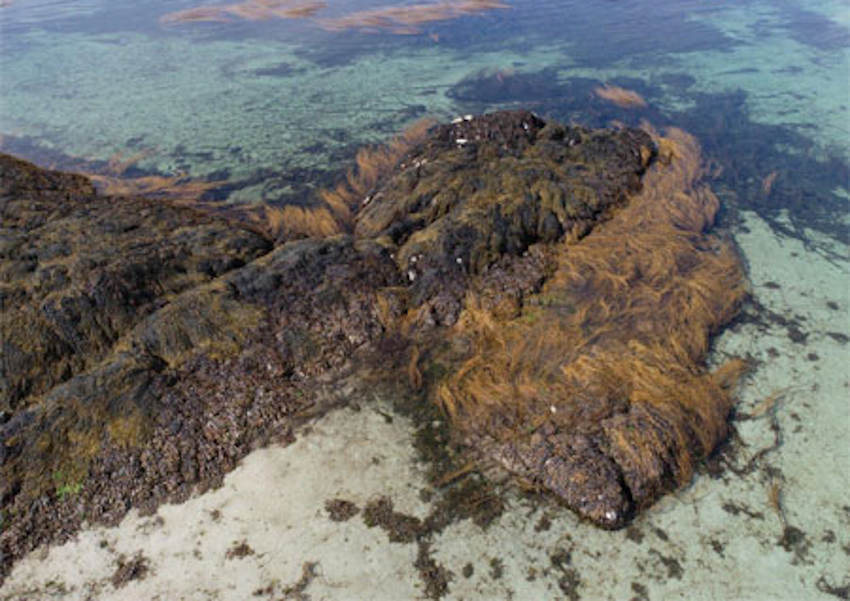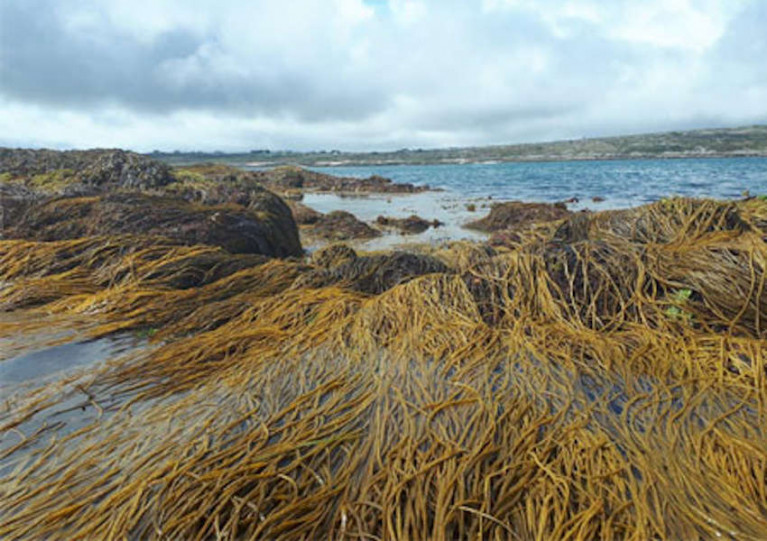Three Irish consortiums have been awarded Small Business Innovation Research (SBIR) contracts by the Marine Institute and Enterprise Ireland to develop Ireland’s intertidal seaweed resource.
The Phase 1 ‘Challenge’ contracts will run over four months, and will involve scientific observations by satellite, drone and light aircraft to produce accurate estimates of seaweed distribution and biomass, and improve our understanding of Ireland’s coastal marine habitat and ecosystems.
Successful projects may then proceed to scaled-up demonstrations and wider regional resource mapping during 2021.
The move is in response to increasing demand at home and abroad for seaweed and seaweed-based products — from fertilisers and animal feed to cosmetics, medicines and food.
It is estimated that 32 countries actively harvest over 800,000 tonnes from wild stocks and natural beds annually. And in Ireland, the Marine Institute says commercial interest in the sector is growing.
Mick Gillooly, director of oceans, climate and information services at the Marine Institute, says: “With increasing awareness of the economic value of seaweed, mapping the extent of this resource is vital for sustainable management decisions.
“This is an exciting collaboration between industry, small business and research institutions, which will utilise the latest innovations and the expertise of Ireland’s national seabed mapping programme INFOMAR.”

Among the three consortiums in receipt of these contracts are four SMEs, two research groups and two industry partners.
Supported by IT Carlow, Aerial Agri Tech bring their drone mapping expertise from the terrestrial to the marine domain with industry partner Bláth na Mara (Aran Islands Seaweed).
Fathom, a business technology consulting company based in Dublin, has partnered with Earth and Ocean Sciences at NUI Galway and Arramara Teo to focus on the potential for satellite data augmented by ‘groundtruthing’ (direct observations on the ground).
Meanwhile, Techworks Marine, a provider of oceanographic solutions to monitor the marine environment, has teamed up with GeoAerospace — a geospatial information technology company with expertise in space-borne and airborne remote sensing, cloud platforms and machine learning — and with NUI Galway’s School of Botany and Plant Science.
Phase one will see the three groups develop their projects and feasibility plans. Pending evaluation in early 2021, either one or two consortiums will receive further funding to move into Phase 2A — eight months to demonstrate proof of scalability and lay out a path to commercialisation.
Successful partnerships will have the potential to develop a niche coastal habitat mapping service that could be used to tackle marine pollution, harmful algal blooms or invasive species.































































